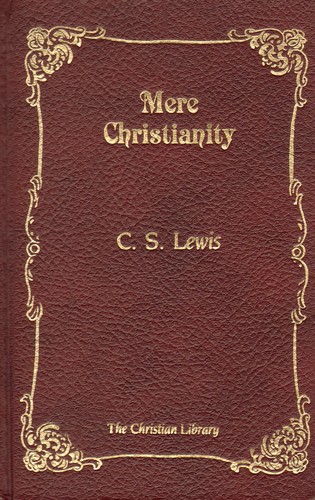Lest there be any alarm at the title of this post, let me give the broader context first. I firmly believe that God is capable of doing whatever He chooses. Further, Scripture makes it abundantly clear that He will be the one to decide when this thing called history will come to an end. I also believe this verse is true:
It’s a wonderful assurance that the Lord is an active God who works in our behalf. Keep in mind, though, that the condition in that verse is that He is working in behalf of those who really love Him. It’s not a blanket promise that everything is going to work out just fine in this life. We can’t just say, well, God promised that all the speed bumps in my life will be leveled and I won’t have to experience major pain or sacrifice.
That’s what leads me to the common cliche that people use whenever they face a hard time: God is in control.
Believe me, I understand why we might fall back on that when things are not going well, whether in our personal lives or in society. When we feel that there is little we can do to correct anything, we simply say, “well, God is in control,” as if whatever happens is what God ultimately intended.
It’s easier to use that phrase if your theology is one that comes from a more Reformed point of view. That’s not where I come from. If God is in control, in the sense that some people interpret it, then every consequence of sin is somehow part of God’s overall plan. Perhaps even your sin is part of His plan. However, one then comes up against the starvation of 7 million Ukrainians by Stalin in the winter of 1932-1933, the Nazi Holocaust of WWII, the millions killed during Mao’s policies and purges in China, among many other outrages against righteousness.
It’s been said many times throughout church history: God is not the author of evil. He is not to blame for unrighteous actions of human beings. We are to blame, and we should never just blithely say that God is in control.
Might I refer to C. S. Lewis’s perspective as offered in Mere Christianity?
In Book Two, What Christians Believe, chapter three, “The Shocking Alternative,” Lewis addresses the obvious: there is evil in the world; is this what God wants? “If it is,” he begins, “He is a strange God, you will say: and if it is not, how can anything happen contrary to the will of a being with absolute power?” The crux of Lewis’s answer is that God has created mankind with free will; the corollary to that is we can go in two opposite directions in our choices—right or wrong.
“Some people think they can imagine a creature which was free but had no possibility of going wrong; I cannot.” Is freedom truly free or is it merely a semantic game we play? Lewis’s explanation continues,
If a thing is free to be good it is also free to be bad. And free will is what has made evil possible. Why, then, did God give them free will?
Lewis is articulating a common question; his response, although not original in the centuries-long debate over this issue, nevertheless encapsulates the argument as well as any other I’ve read.
Because free will, though it makes evil possible, is also the only thing that makes possible any love or goodness or joy worth having. A world of automata—of creatures that worked like machines—would hardly be worth creating.
God created mankind in His own image. God freely loves. He wants us to freely love as well. If what we do isn’t free, it has no real value. Lewis explains further, “The happiness which God designs for His higher creatures is the happiness of being freely, voluntarily united to Him and to each other in an ecstasy of love and delight compared with which the most rapturous love between a man and a woman on this earth is mere milk and water. And for that they must be free.”
What if you disagree with God’s decision to make us like Him? Be careful, Lewis warns. After all, your own ability to think things through and reason things out comes from Him. “When you are arguing against Him you are arguing against the very power that makes you able to argue at all: it is like cutting off the branch you are sitting on.” We need to see it from a godly perspective.
If God thinks this state of war in the universe a price worth paying for free will—that is, for making a live world in which creatures can do real good or harm and something of real importance can happen, instead of a toy world which only moves when He pulls the strings—then we may take it it is worth paying.
At this point, you might be wondering why I began this post with a concern for the cliche, God is in control, when I then turned to a more lengthy Lewis quote on free will. I hope you can see the linkage. God could take absolute control of every bad situation if He chose to do so, but that’s not the way it works. God rarely intervenes to make us do exactly what He wants us to do. That’s up to us.
The only real place where we should focus on God being in control is our allowing Him to be our Lord and strength regardless of our circumstance. If, by our own free will, actuated by love for Him and what He has done for us, we work with Him to control our emotions and choices, then we can say with greater confidence that God is in control because we are obeying Him. And when we love and obey Him, we are being called according to His purposes—that’s when Romans 8:28 goes into effect. That’s when He will work all things together for good.



